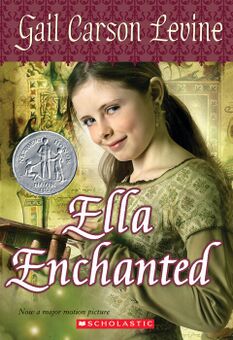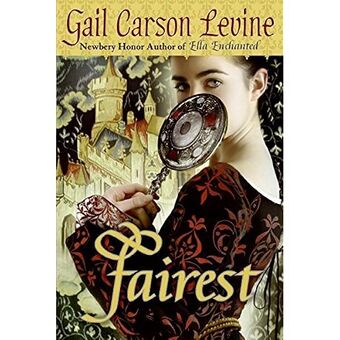Course:Gail Carson Levine
| CRWR 501P 003 |
|---|
 |
| Advanced Writing of Poetry |
|
| Important Course Pages |
| Categories |
Gail Carson Levine
Gail Carson Levine is an American middle-grade and young adult author. She has written such books as Ella Enchanted (adapted as a movie starring Anne Hathaway) and Fairest, as well as other novels and collections of shorter stories.
Many of Levine’s stories are creative adaptations of classic fairy tales. For example, Ella Enchanted is a retelling of Cinderella, complete with the evil stepsisters and fairy godmother. But in this telling, Ella’s fairy godmother isn’t exactly helpful; she gives infant Ella the “gift” of obedience, making it impossible for her to ignore a direct command. Fairest, taking place in the same world as Ella Enchanted, is a retelling of Snow White, in which Snow White (or Aza) is considered hideous due to her trademark features: white skin, blood-red lips, and crow-black hair. In Fairest, Aza is an amazing singer, and attracts attention from both the Prince and the evil (or really, just insecure) Queen. Levine’s twists on well-known stories not only entertained children, but also provided commentary on the original story and used the references to classic narratives to her advantage.
Levine’s novels were my first real exposure to the concept of appropriation (note: not cultural appropriation) as an artistic device. The stories mentioned above used their referenced texts as a tool in meaning-making. Such adored and recited tales as Cinderella and Snow White are known by almost every child in North America (and beyond), and the places where Levine maintains or contradicts the original story are purposeful and effective. She uses the feelings and meaning associated with the original texts to create different meaning altogether.
Appropriation in poetry is an interest of mine. I am amazed with the kinds of things that can be artfully appropriated, from language to story to form. Even in my peers’ work, I see appropriation serving a meaningful purpose: a poem which is structured like a script, bringing a cinematic vibe to the words; a reference to a devastating moment in a beloved children’s show, evoking childlike emotion; the use of a common airplane safety phrase, showing the life-or-death effect of self-care. Words act like containers, and when another author has filled certain words with meaning, we may use the words to carry/pour/discard this meaning into our own work.

